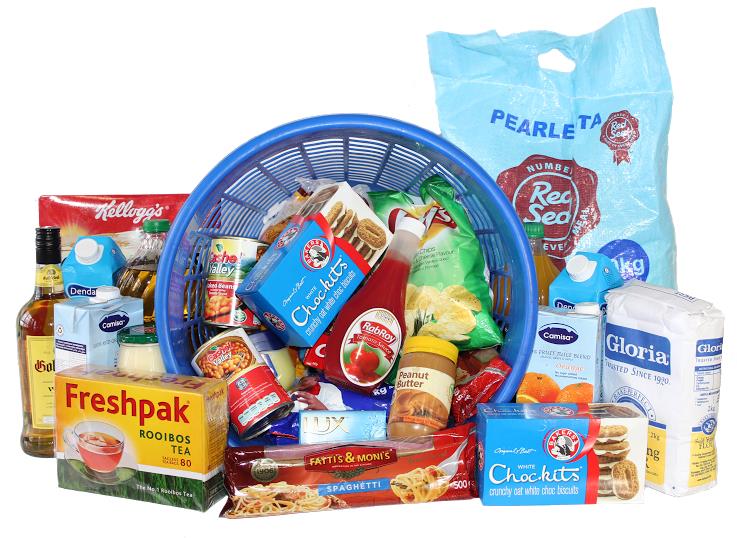Prices madness riles consumers
Share

THE recent spiral in the cost of basic commodities is driving Gwanda consumers to shop their groceries across the borders in South Africa.
A snap survey conducted by this publication revealed that most people were shunning local supermarkets due to the 15 percent Value Added Tax (VAT) that was introduced in the recent budget, by the Minister of Finance, Economic Development and Investment Promotion, Professor Mthuli Ncube.
Sibonile Siziba, a consumer and resident of Gwanda, said basic commodities are not supposed to be beyond reach of ordinary citizens.
“The sharp rise in prices of basic commodities is not only affecting the consumer but the business community as well.
“As you see, this big supermarket is empty but it is month end. This alone speaks volumes. Most of the basic commodities shot up in prices by more than 20 percent, yet salaries remain unchanged.
“What makes it worse is that civil servants salaries were heavily taxed yet they are the ones who pay more tax to Government, honestly this is not fair,” complained Siziba.
One consumer who failed to buy his groceries said he would rather resort to crossing the border to South Africa for groceries.
“The prices are now exorbitant such that I can no longer afford to buy groceries locally. I have a family of six and i used to buy a monthly grocery of USD $100 but now the same amount buys me half of what I used to buy.”
“This animal called VAT is something else. I would rather change my money into South African rands and cross the border for my groceries,” said Thulani Ndlovu, from Phakama Township.
Two women, who were debating the increases in the price of basic commodities outside one of the three retail stores simply said they would resort to monthly grocery clubs.
“Instead of doing annual grocery clubs, now we have to think outside the box. These prices will force us to do fortnightly or monthly grocery clubs as we can no longer afford local products.
“As a way forward, we shall have one big vehicle that will be going to South Africa every month to buy groceries for members,” said one of the female consumers, who identified herself as Dlamini.
The Consumer Council of Zimbabwe has warned retail outlets and called for responsible pricing on all goods while adhering strictly to the foreign currency auction system, if operating a dual pricing model.
The directive comes in response to widespread consumer complaints regarding price distortions and inconsistencies in major retail outlets across the country
Background
PRICES of most basic commodities, particularly food items, have surged by more than 30 percent since last year as the Zimbabwe dollar continues to lose value against the United States dollar.
The new 15 percent value-added tax (VAT) that kicked in on January 1 this year after its introduction in the 2024 National Budget has triggered a rise in prices of basic commodities including bread, milk, sugar, soap and cooking oil. The price of bread price, the foremost indicator of a price stampede, shot past the US$1 to US$1,30.
The last time bread cost more than US$1 was in 2018 when it retailed at US$1,10. The price hikes come despite Government having reviewed its tax regime early this month to forestall a price stampede.
For instance, a loaf of bread, which used to be ZWL$7 818, has risen to ZWL$11 000, a 2kg bag of flour, previously priced at ZWL$22 499 has increased to $26 600, while a 2kg packet of rice has increased from ZWL$21 745 to ZWL$27 599.
Bread is retailing at between US$1,10 and US$1,30 from US$1; 2kg flour is now US$2,30 from US$2 and a 2kg packet of rice is being sold at US$2,60 from US$2,20. Sugar is selling at US$3 from about US$2,50, while cooking oil is retailing at over US$3,50 depending on the brand.
In an interview yesterday, economist Prosper Chitambara said the basic goods price increase was attributed to increased taxes and the worsening depreciation of the Zimdollar, which is now trading at ZWL$14 500 to the greenback on the parallel market and ZWL$9 000 on the official market.
National Consumer Rights’ Association spokesperson, Effie Ncube, said the Zimbabwean economy was experiencing depreciation due to loss of confidence in the local currency.
He said Zimbabwe’s current price hikes were triggered by inflationary taxes, including toll fees, fuel increases and VAT.
“Taxing our way out of the present problems is not an option. In actuality, the new and increased taxes were the cause of the current price increases. These have a strong inflationary effect,” he said.
“Thus, as it stands, the budget was the catalyst for the soaring costs. The budget, like fuel increases, created panic and grave concern rather than providing comfort to the market.
“Some of the budgetary measures that are causing prices to go up include toll fee increases, fuel increases arising from Statutory Reserve Levies, the removal of some products from zero rating to standard and value-added tax.”
Ncube said economic policies should focus on productivity to address foreign currency shortages, adding that lack of market confidence in the Zim Dollar and a shortage of foreign currency contribute to instability and price volatility.
“We need to prioritise productivity in our economic policies in order to address the persistent shortage of foreign currency. The policies that have been implemented over the years do not enjoy the confidence of the market, and our economy lacks stability,” he said.









